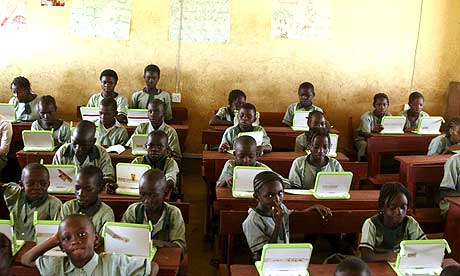When Mr and Mrs Durosimi found out they were going to have a 4th child they had a mixture of disappointment and excitement. After more than 20 years of marriage a fourth Child was the least of their problems, not with the rising cost of goods and services. Their child Wale is now an adult and like his eldest sibling Temi, is blessed with excellent academic qualities. He is now set for secondary education and has been offered an admission in a “top” private secondary school in Lagos. The school is rated not only as one of the most popular but also one of the most expensive. School fees per term is about N1m and a year N3m. Presumptuously, their teachers are graduates and the kids get to travel to foreign lands on excursions. They even have computers in the school and the classes all have air conditions. In the past, the Durosimi’s won’t even think twice about stumping up the fees and enrolling their kid but this is different. Temi is about going abroad for her masters at a time when another sibling of their’s is seeking admission in a secondary school. Coincidentally her tuition and that of Wale is about N3m each even though one is for a local secondary school and the other a foreign university. How is that possible their parents wonder? “We never thought of it this way you know” .
In a country where the cost of Montessori schools far out weigh that of Tertiary Universities what does one do? It’s an anomaly that has now become a norm. Parents pay millions on primary and secondary education only for their kids to end up studying obscure courses in Private Universities that are yet to be accredited. In Nigeria school fees are a burden to a lot of middle class families who are looking for quality education for their kids. With a nonexistent public school system families now have to rely on private universities for the education of their kids. This obvious monopoly of an important industry have ensured educational standards are not regulated properly. Schools are more or less measured by how beautiful the scenery is, security provided, peers and every other thing that have nothing to do with improving the educational standard of the child. Parents do not have a choice as they have a responsibility to ensure their children get the best education they can possibly afford. But how does a family with a combined income of N12m per annum afford to pay for school fees for children that range from N500k to N1m per annum each. A way out may be some form of banking/insurance product that enable parents put aside some savings monthly until its time for the kids to go to college. The parents can now borrow/withdraw against their annuity savings made over say 10years. But that is in an ideal world, not here in Nigeria. Most parents who ordinarily cannot afford school fees from their income get around this through kick backs and back-room deals from their work place.
Some parents who can’t afford to soil their integrity but still can’t afford to pay the fees from their income resort to borrowing. Some from family and friends and some through commercial banks. Commercial Banks? Yes commercial banks. Most offer soft loans from N50,000 and above (depending on your income)at interest rates based on “market conditions” for a tenor of 3-6months. Ostensibly, borrowers will have to domicile their salary accounts with the bank a situation that becomes ominous should the borrower already have a loan with another bank. Applying and providing security such as letter of guarantee from your employer is another impediment that a borrower must grapple with when borrowing in Nigeria.
As for the Durosimi’s they face a more immediate dilemma, a decision must be reached very soon. Temi is eager to further her studies and may miss out on her visa application of the fees are not paid soon. Wale needs to meet up with his friends, most of whom have already enrolled with the school, otherwise he may face the ignoble fate of settling for a mediocre but cheaper school. Mr and Mrs Durusimi have worked for over 20years now and plan to retire in 10years. They believe now is the time to accelerate savings for life after work and secure the future of their kids through portfolio investments. But with school fees 50% their combined salaries things couldn’t have been more gloomy. If they were you what would you do?
Updated September 24, 2012









MONTESSORI VS TERTIARY? THIS FAMILY NEEDS YOUR HELP https://t.co/YECPD3fH
MONTESSORI VS TERTIARY? THIS FAMILY NEEDS YOUR HELP https://t.co/6cI8JoK3
The problem is that some parents just want to belong. Schools with high fees because they are located in highbrow areas and have buildings with high aesthetic appeal is no guarantee that the standard is high. They are sometimes nothing but mere facade. We know that the best students in SSCE in recent years are not those from high fee paying schools. Parents should cut their coat according to their materials. I wonder sometimes what they teach a four year old child in some schools that parents will be made to pay so much. It is not worth the financial stress parents are burdened with. Be wise.
Hi Charles,
Some parents feel they do not have a choice. There aren’r just enough choices. Its probably cheaper to have your child school abroad than locally,
The tetiary education is more important. A less expensive should be found for Wale
BLOG POST:: MONTESSORI VS TERTIARY? THIS FAMILY NEEDS YOUR HELP – When Mr and Mrs Durosimi found out they wet going… https://t.co/egIr9SOC
MONTESSORI VS TERTIARY? THIS FAMILY NEEDS YOUR HELP | UGOMETRICS NIGERIA : PERSONAL FINANCE | ECONOMY | BUSINESS https://t.co/TkA4lodU